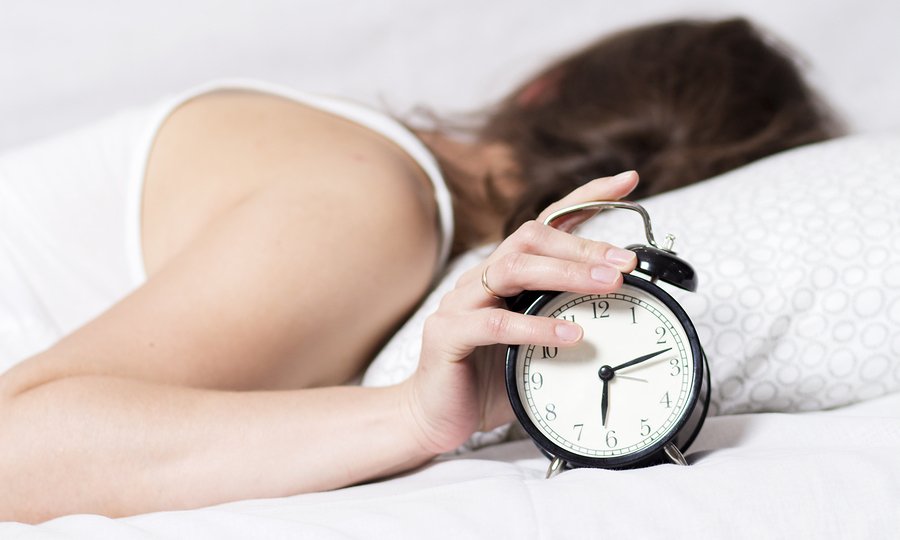Few people rush to bed at night excited to see what dreams may come. In fact, at least five percent of adults suffer from frequent nightmares.1http://www.statista.com/statistics/236993/nightmares-by-age-group/ Experts think nightmares are far more common than typically reported, as a study in the Journal of Abnormal Psychology reveals.2Wood, James M. and Bootzin, Richard R. “The Prevalence of Nightmares and Their Independence from Anxiety.” February 1990. University of Arizona. 14 February 2019. http://arizona.pure.elsevier.com/en/publications/the-prevalence-of-nightmares-and-their-independence-from-anxiety The study of 220 undergraduates found that 47 percent of them had at least one nightmare within a two-week period, which led researchers to conclude that nightmare rates are probably 2.5 times more frequent than previously thought.
Even if you haven’t had a nightmare since you lost your baby teeth, chances are good that your dreams don’t inspire or comfort you, and that’s a shame since experts believe dreams have an important impact on the psyche.3“What Do Your Dreams Say About Your Sleep Quality?” 6 December 2017. Huff Post. 15 February 2019]. http://www.huffpost.com/entry/dreams-sleep-quality_n_8513908 At the least, they help us to consolidate memories and retain information.4Osterwell, Neil. “The Health Benefits of Dreams.” WebMD. 15 February 2019. http://www.webmd.com/mental-health/features/the-health-benefits-of-dreams#2 They also play a role in stabilizing mood, preventing depression, and perhaps even in expanding consciousness. Plus, as psychotherapist Dr. Rosalind Cartwright of Rush University in Chicago, explains, dreams can help us solve personal problems. “It’s almost like having an internal therapist, because you associate [through dreams] to previous similar feelings, and you work through the emotion related to it so that it is reduced by morning.”
Dreams take place during REM sleep, which is the fourth or fifth stage of sleep—depending on how you count. In the first two stages, we progressively slip into an ever-deeper doze as our brain waves slow down. By stage three when delta waves are dominant, we’re really out to the point where it might be hard to awaken us. (Sometimes delta sleep is considered two stages: the onset of delta and deep sleep when delta waves are primary.) Then, in REM sleep, breathing speeds up, our eyes move under our eyelids, and dreaming occurs. In other words, to dream, we need to have REM sleep, and studies show that when deprived of REM sleep, memory becomes impaired, psychiatric problems may arise, migraines increase, and dementia risk spikes. Lab rats denied REM sleep die within five weeks instead of living out their two- to three-year life span.5http://sleep-deprivation.com/sleep-disorder-symptoms/rem-sleep-disorders-health-and-rem-sleep/
That said, the most important prerequisite for good dreams is good sleep. You need to rest deeply enough to reach the REM state. Actually, the brain cycles through all four sleep stages several times a night, with most dreams occurring in the final REM cycle, which also happens to be the longest REM cycle, closest to when you wake up. To get there, practice good sleep hygiene and if you suffer from insomnia, check our past blogs for tips that might help. These tips will help you enhance whatever dreams you have:
- Adjust your sleep position. Strange as it may seem, studies verify that sleeping position affects the types of dreams you may have. The most common sleeping position is on the side, preferred by up to half of us. Side sleepers generally have better dreams than back sleepers, though it matters which side you choose. Those who sleep on their right sides report better dreams and fewer nightmares than those who sleep on their left.6Rampton, John. “8 Ways to Improve Sleep by Enhancing Your Dreams.” 24 November 2015. Entrepreneur Magazine. 15 February 2019. http://www.entrepreneur.com/article/252743
Flipping onto one’s stomach tends to elicit more erotic and wild dreams.7Hsu, Christine. “Why Sleeping on Your Stomach Leads to More Erotic Dreams.” 9 August 2012. Medical Daily. 15 February 2019. http://www.medicaldaily.com/why-sleeping-your-stomach-leads-more-erotic-dreams-241863 Experts believe that’s because there’s more pressure on sexual organs when you’re face down. Also, airflow becomes limited when you lie on your stomach, which triggers a feeling of being constricted by an outside force (such as a partner).
Back sleepers are more likely to have nightmares and to have more difficulty recalling their dreams. According to dream researcher Dr. Calvin Kai-Ching Yu of Hong Kong Shue Yan University, this might be because sleeping face-up can lead to snoring and sleep apnea. “Breathing-related sleep disorders, such as sleep apnea, have been found to have significant impacts on the intensity of dreaming,” he says.
At least one-third of us flip around during the night like we’re on a rotisserie, from back to left to right. Your dreams will likely be most affected by the position you land in right before waking up.
- Use essential oils. We’re written in the past about how scents can affect dreams. As we noted, subjects who sniff a rose scent during REM sleep report dreams that are three times as positive in emotional tone as those who sniff rotten egg. To have pleasant dreams, you can place a vase of fragrant flowers near your bed, or choose an appropriate essential oil. To deliver the scent while you sleep, either use a scent diffuser or just dab the oil (mixed with a carrier oil so it doesn’t burn your skin) behind your ears, on your wrists, and at the bottom of your feet.8Adriana. “5 Best Essential Oils for Nightmares.” Enjoy Natural Health. 16 February 2019. http://www.enjoynaturalhealth.com/aromatherapy-for-nightmares/ Good choices include lavender oil, mandarin, vetiver, sandalwood, and rose. All these scents have a calming effect, and several (lavender, vetiver) actually work as natural sedatives, promoting deeper sleep while lowering heart rate and blood pressure.
- Try vitamin B6. Several studies have found that taking 250 milligrams of vitamin B6 just before bed enhances the vividness of color and emotion in dreams and also helps with dream recall.9Haridy, Rich. “Vitamin B6 found to aid dream recall, and possibly enable lucid dreaming.” 30 April 2018. New Atlas. 16 February 2019. http://newatlas.com/vitamin-b6-help-dream-recall/54424/ There’s also some evidence that B6 might help to induce lucid dreaming, where the dreamer is aware that he or she is dreaming and can control, to some extent, dream events. Two provisos, though: first, vitamin B complexes don’t work as well as B6 isolate for dream enhancement, and second, B6 can make dreams more bizarre as well as more vivid.
- Program yourself. Dream experts say you can give yourself suggestions to influence the content and quality of your dreams. For instance, if you’re prone to nightmares, you can practice “Image Rehearsal Therapy,” in which you imagine alternate endings to bad dreams for a period of 10 to 15 minutes before going to sleep.10“What Do Your Dreams Say About Your Sleep Quality?” 30 November 2015. Huff Post Life. 16 February 2019. http://www.huffpost.com/entry/dreams-sleep-quality_n_8513908 You can also practice this method to solve problems. Dream researcher Deirdre Barrett, a psychology professor at Harvard Medical School, suggests, “First of all think of the problem before bed, and if it lends itself to an image, hold it in your mind and let it be the last thing in your mind before falling asleep.” On top of that, you might want to imagine the problem being resolved successfully and you being happy.
- Listen to music. Music does tend to infiltrate dream content. The trick is to find music that uplifts and inspires you and listen to that before or during sleep. Discordant or exciting music might not give you the result you want. And make sure you’re just listening to music, not watching music videos before bed. Looking at the blue light from your computer or smartphone screen before bed makes it harder for you to fall asleep.
References
| ↑1 | http://www.statista.com/statistics/236993/nightmares-by-age-group/ |
|---|---|
| ↑2 | Wood, James M. and Bootzin, Richard R. “The Prevalence of Nightmares and Their Independence from Anxiety.” February 1990. University of Arizona. 14 February 2019. http://arizona.pure.elsevier.com/en/publications/the-prevalence-of-nightmares-and-their-independence-from-anxiety |
| ↑3 | “What Do Your Dreams Say About Your Sleep Quality?” 6 December 2017. Huff Post. 15 February 2019]. http://www.huffpost.com/entry/dreams-sleep-quality_n_8513908 |
| ↑4 | Osterwell, Neil. “The Health Benefits of Dreams.” WebMD. 15 February 2019. http://www.webmd.com/mental-health/features/the-health-benefits-of-dreams#2 |
| ↑5 | http://sleep-deprivation.com/sleep-disorder-symptoms/rem-sleep-disorders-health-and-rem-sleep/ |
| ↑6 | Rampton, John. “8 Ways to Improve Sleep by Enhancing Your Dreams.” 24 November 2015. Entrepreneur Magazine. 15 February 2019. http://www.entrepreneur.com/article/252743 |
| ↑7 | Hsu, Christine. “Why Sleeping on Your Stomach Leads to More Erotic Dreams.” 9 August 2012. Medical Daily. 15 February 2019. http://www.medicaldaily.com/why-sleeping-your-stomach-leads-more-erotic-dreams-241863 |
| ↑8 | Adriana. “5 Best Essential Oils for Nightmares.” Enjoy Natural Health. 16 February 2019. http://www.enjoynaturalhealth.com/aromatherapy-for-nightmares/ |
| ↑9 | Haridy, Rich. “Vitamin B6 found to aid dream recall, and possibly enable lucid dreaming.” 30 April 2018. New Atlas. 16 February 2019. http://newatlas.com/vitamin-b6-help-dream-recall/54424/ |
| ↑10 | “What Do Your Dreams Say About Your Sleep Quality?” 30 November 2015. Huff Post Life. 16 February 2019. http://www.huffpost.com/entry/dreams-sleep-quality_n_8513908 |










